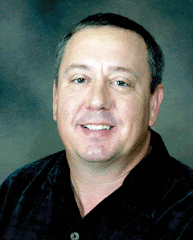Several weeks ago I wrote a column about a book I had read about one of my child hood heroes, Pistol Pete Maravich. As soon as I finished that book I picked up another book about another sport hero from that same era. At the risk of turning my column into a book review, I have to write about the book that I just finished titled Clemente: The Passion and Grace of Baseball’s Last Hero by David Maraniss. The book caught my eye in the book store because I was a young boy during his heyday with the Pittsburh Pirates. Clemente also had a connection with Nicaragua, the homeland of my wife, and we had just traveled there back in the spring (yes I know that I wrote about that too).
For those that might not remember him or know who he was, Clemente was arguably the best right fielder to ever play the game of Major League Baseball. He won 12 straight Golden Glove Awards, four National League batting titles, was a 10 time selection to the All Star team, was National League MVP in 1966 and World Series MVP in 1971.
I can’t say that I idolized Clemente as a childhood hero. He played baseball and to be honest most of my sports heroes were football and basketball players. I followed the game of baseball though, as an Atlanta Braves fan (Rico Carty, Felipe Alou and Hank Aaron) and knew enough to realize that Clemente was a special athlete.
The book, which is well written, highlights some aspects of Clemente’s life that I was unfamiliar with. Aspects such as his temper, his disdain for most sportswriters who he felt portrayed him as a hypochondriac, his overwhelming pride in his homeland of Puerto Rico and his battle to end unfair treatment of minorities in pro baseball. Clemente was a black Puerto Rican, so in his mind he got a double dose of discrimination.
But the book also details his humanitarian efforts and his kindness to many a child who looked up to him. That humanitarian side of him is what eventually led to his death. He had coached the Puerto Rican All Star teams in the International leagues several times when they journey to Nicaragua. He developed a fondness for the people of that country and in 1972 was dismayed at the devastation caused by the massive earthquake in the capital city of Managua. He organized plane loads of relief for the country and was tragically killed in a plane crash en route to Nicaragua on New Year’s Eve, 1972.
Clemente had a saying, “if you have a chance to make a difference in someone’s life and you don’t, you’ve wasted your time on earth”. Simply Put, he didn’t waste his time and we shouldn’t either.
From the front porch: Uncle Bob said if the grass is greener on the other side of the fence, you can bet their water bill is higher.
For those that might not remember him or know who he was, Clemente was arguably the best right fielder to ever play the game of Major League Baseball. He won 12 straight Golden Glove Awards, four National League batting titles, was a 10 time selection to the All Star team, was National League MVP in 1966 and World Series MVP in 1971.
I can’t say that I idolized Clemente as a childhood hero. He played baseball and to be honest most of my sports heroes were football and basketball players. I followed the game of baseball though, as an Atlanta Braves fan (Rico Carty, Felipe Alou and Hank Aaron) and knew enough to realize that Clemente was a special athlete.
The book, which is well written, highlights some aspects of Clemente’s life that I was unfamiliar with. Aspects such as his temper, his disdain for most sportswriters who he felt portrayed him as a hypochondriac, his overwhelming pride in his homeland of Puerto Rico and his battle to end unfair treatment of minorities in pro baseball. Clemente was a black Puerto Rican, so in his mind he got a double dose of discrimination.
But the book also details his humanitarian efforts and his kindness to many a child who looked up to him. That humanitarian side of him is what eventually led to his death. He had coached the Puerto Rican All Star teams in the International leagues several times when they journey to Nicaragua. He developed a fondness for the people of that country and in 1972 was dismayed at the devastation caused by the massive earthquake in the capital city of Managua. He organized plane loads of relief for the country and was tragically killed in a plane crash en route to Nicaragua on New Year’s Eve, 1972.
Clemente had a saying, “if you have a chance to make a difference in someone’s life and you don’t, you’ve wasted your time on earth”. Simply Put, he didn’t waste his time and we shouldn’t either.
From the front porch: Uncle Bob said if the grass is greener on the other side of the fence, you can bet their water bill is higher.

No comments:
Post a Comment